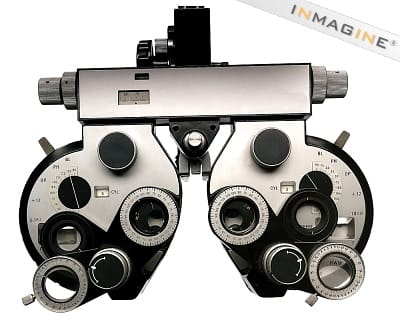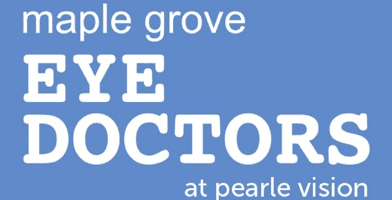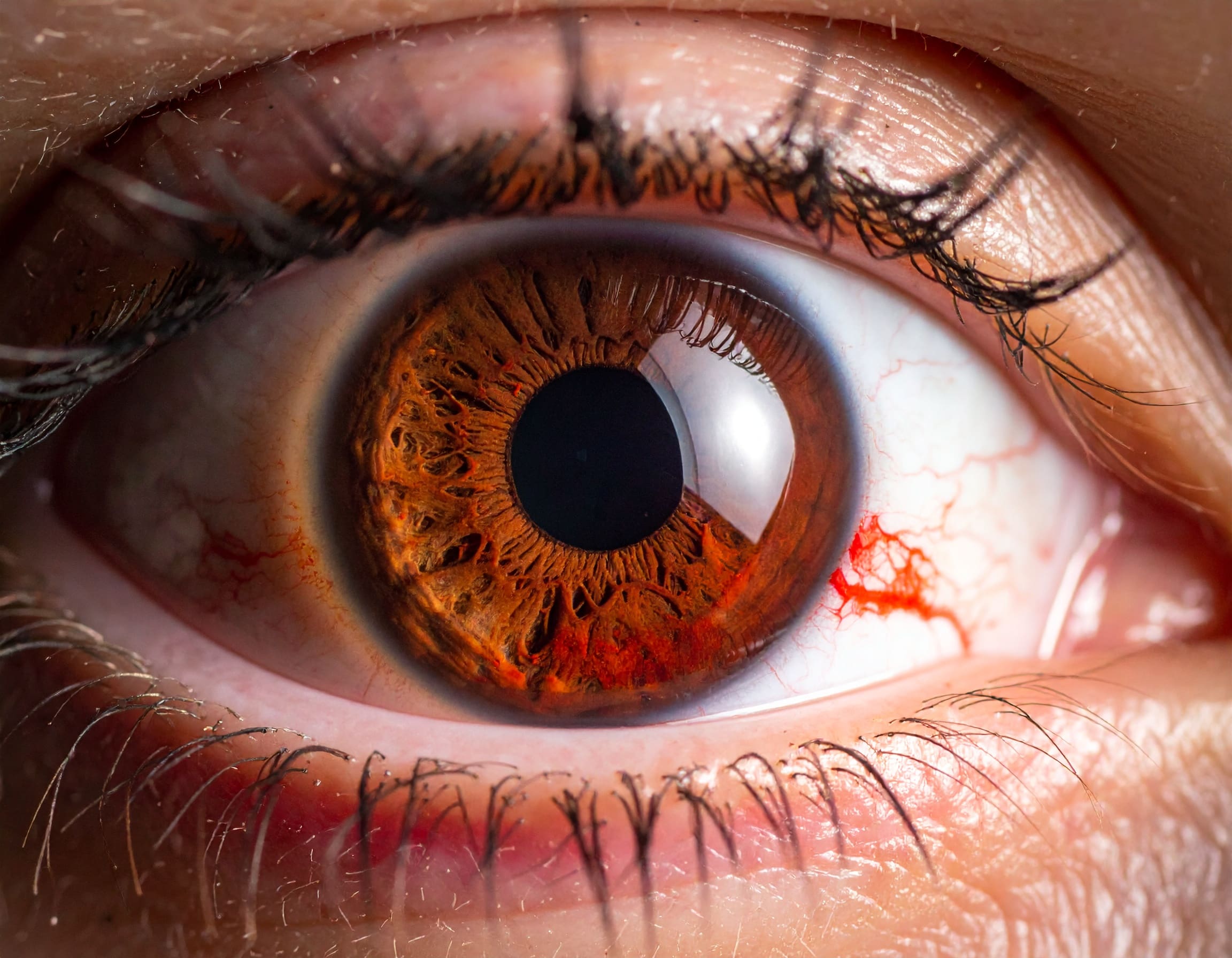You have your annual physicals. You see your dentist regularly. You’ve got this healthcare thing down. But is your eye doctor on that list?
If not, why not?
Regular exams keep your vision strong, but they also detect eye diseases early — many of which go unnoticed for a long time.

If not, why not?
Regular exams keep your vision strong, but they also detect eye diseases early — many of which go unnoticed for a long time.
What Happens During an Eye Exam?
During an eye exam, an optometrist (eye doctor) will check your:
- Visual Acuity: How clearly you can see
- Eye Alignment: Where each eye is looking when you focus on one spot
- Eye Movement: How your muscles move your eyes around
They will also look inside your eyes to check for signs of eye disease, such as cataracts and glaucoma, or other health problems, including high blood pressure and diabetes.
Whether your eye exam serves to help you see more clearly or to monitor your risk for eye diseases, it is difficult to argue the benefit of getting your eyes checked regularly, like every one to two years. We love it when patients tell us, “I don’t need an eye exam because I have perfect vision.” That may initiate a private eye roll, LOL!
How do you know if you have perfect vision? You may think you do, but you also may not know what you are not seeing or how vivid colors are.
Depending on your age, health history, and even gender, recommendations for how often you should see your doctor may differ.
Reasons to Schedule an Eye Exam
Experts recommend annual eye exams to maintain your eye health. If you are long overdue or are seeing “just fine,” here are seven signs you might need an eye exam to keep vision problems in check:
1. You Can’t Remember When You Had Your Last Eye Exam (This Is A PERFECT Reason!)
If you don’t know the last time you had a thorough eye exam, it has probably been a while. Many eye diseases have no symptoms at first, and they may go unnoticed and continue to worsen over time. Screening can help lead to getting treated sooner and avoiding a worst-case scenario.
Early diagnosis and treatment are critical for treating common eye diseases, such as:
- CATARACTS: The clouding of the lenses in your eyes, which can lead to vision loss
- DIABETIC RETINOPATHY: Damage to blood vessels in the back of your eyes, which can cause blindness
- GLAUCOMA: The disease that damages your optic nerves
- AGE-RELATED MACULAR DEGENERATION: Gradual loss of tissues in your eye that use light to see
So, how often should you have an eye exam? That depends on your age and other risk factors.
If you have no risk factors, ask your doctor if every two years is sufficient. Once you turn 65, talk to your doctor about bumping that up to every year.
If you have other risk factors, such as a family history of eye disease, you will need to go to the eye doctor annually, no matter your age.
2. You Have a High Risk for Eye Diseases
Like any other aspect of your health, certain things can increase your risk of developing eye diseases — some of which are out of your control. So, when should you ask about having your eyes checked every year? Do that if you:
- Have a personal or family history of eye disease, including cataracts, diabetic retinopathy, glaucoma, or macular degeneration
- Are African American or Mexican American
- Have diabetes, which can lead to diabetic retinopathy, glaucoma, or cataracts
- Have a job that’s visually demanding, such as using the computer all-day
- Wear contact lenses
- Have had eye surgery or an eye injury in the past
- Have eyesight that continues to worsen over time
3. Your Vision is Getting Worse
More than 150 million Americans use some sort of corrective eyewear, such as glasses or contacts. Some have trouble seeing far away (nearsightedness), and others struggle to see close up (farsightedness).
If you, too, are struggling to read the signs on the road or the text on this screen, that is a good reason to go see your eye doctor.
Besides, if you are over 40 or 60, haven’t had an eye exam in a good while, and are experiencing vision changes now, get going. Eyesight starts changing drastically in older adults. Early detection and proper treatment can lead to better outcomes. Otherwise, vision problems can make it challenging to go about your daily routine.
Unattended eye strain can also cause headaches. This happens when your eyes aren’t focusing as they should, causing them to work harder than normal. Usually, a headache caused by eye strain will occur after you use your eyes for an extended period of time, such as reading, working on the computer, or even sewing.

4. You Have Allergies
If your eyes are red and irritated — but you don’t see anything in them — you might have allergies. You may not even get the tell-tale signs of sneezing, sniffing, or stuffy nose, but you may have eye allergies if you are experiencing:
- Itchiness
- Redness
- Burning
- Clear, watery discharge

Eye allergies can be caused by:
- Outdoor allergens, such as grass, trees and weeds
- Indoor allergens, such as pet dander, mold and dust mites
- Irritants, such as smoke or perfume
Depending on the severity, your eye doctor might recommend you use over-the-counter or prescription eye drops and medications. They may also refer you to an allergist, a physician who specializes in the diagnosis and treatment of allergies.
5. You’re Having Other Eye Problems
If you feel something is wrong with your eyes, don’t wait until your next appointment. You may be experiencing early signs of eye disease, eye infection, or injury.
Nearly 1 million Americans get an eye infection that requires medical attention each year, and roughly 2.4 million Americans suffer an eye injury. Listen to your body — if you’re concerned about your eye health, make an appointment with your eye doctor as soon as possible.
What are the other reasons to see your eye doctor?
- Draining or redness in one or both eyes
- Eye pain
- Double vision
- Floaters (tiny specks that seem to be floating before your eyes)
- Circles or halos around lights
- Flashes of light
6. You Have an Underlying Health Condition That Affects the Eyes
When it comes to protecting the eyes, it is important to be healthy overall. Eating right, exercising, taking time off from screens, and having regular eye checkups go a long way.
Often, despite taking proper care, something still doesn’t feel right. Have an underlying medical condition? Bull’s eye! That’s the culprit.
Many health conditions can affect the eyes severely. A few of these can eventually lead to glaucoma, cataracts, and diabetic retinopathy.
The common types of medical conditions that affect eye health include:
- Diabetes
- High blood pressure (Hypertension)
- Liver problem
- Shingles
- Lyme disease
- Measles
- Autoimmune diseases
- Sickle cell disease
- A lack of vitamins A, C, E, zinc, and lutein
Many of these conditions do not directly but indirectly relate to the eyes. If these go undiagnosed or untreated, it is possible for patients to experience major discomfort in the eyes and vision loss in severe cases.
Visiting your eye doctor every once in a while is important to keep your eye health under check.
7. Aches and Pains
See no visual changes but experience unnecessary eye and head discomforts? THAT, RIGHT THERE, IS A SIGN YOU NEED TO SEE AN EYE DOCTOR.
Eye strain, dry eyes, light sensitivity, and excessively using digital screens (particularly at night) indicate something stressing your eyes. Thus, you must go for an eye exam immediately.
Excessive eye pain can mean something minor, like developing myopia, or something major, like glaucoma. In addition, headaches occur because your eyes have been trying to focus too hard all this while, but you assumed it was normal.
Many people overlook these symptoms. Often, a good pair of computer glasses or prescription glasses can set you on your way.
Even if your pains and aches are general discomforts, a routine eye exam is a good way to keep your eye health in check.
How do You Keep Your Eyes Healthy between Exams?
Beyond getting your eyes checked regularly, there are simple ways to maintain your eye health:
- Eating a healthy diet, including leafy greens like spinach and kale
- Maintaining a healthy weight
- Wearing quality sunglasses with quality lenses that block out 99 to 100 percent of harmful UV-A and UV-B radiation from the sun
- Quitting smoking — or not starting at all
- Following the 20-20-20 rule if you spend a lot of time focusing on a screen — every 20 minutes, look about 20 feet in front of you for 20 seconds
Healthy eyes are an essential part of your overall health. The longer you delay seeking professional assistance for your vision, the quicker your eye health will deteriorate.
Your eyes have to overwork, leading to frequent headaches, eye pain, difficulty concentrating, blurry vision, dizziness, crossed vision, eye fatigue, eye pressure, and more.
By keeping up with regular eye exams and maintaining your eye health, you could save yourself from vision and health problems in the near future and for years to come.





